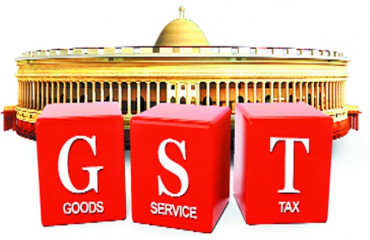
The government is in the process of naming a new chairperson for the antitrust regulator and three other members, and the orders on profiteering will start coming after appointing at least one new member or the chairperson, which will give CCI the requisite quorum of three members to adjudicate
- The government is in the process of naming a new chairperson for the antitrust regulator and three other members, and the orders on profiteering will start coming after appointing at least one new member or the chairperson, which will give CCI the requisite quorum of three members to adjudicate
More than a hundred orders against companies which have allegedly profiteered by withholding goods and services tax (GST) benefits from consumers will be issued once the watchdog gets to full strength, two people familiar with the matter said.
The government is in the process of naming a new chairperson for the antitrust regulator and three other members, and the orders on profiteering will start coming after appointing at least one new member or the chairperson, which will give CCI the requisite quorum of three members to adjudicate, said one of the two people cited above.
The Directorate General of Anti-Profiteering (DGAP), the agency probing GST-related profiteering, has completed well over 100 investigation reports on corporate profiteering, on which final orders from CCI are awaited. These include the investigation reports transferred from the now-abolished National Anti-Profiteering Authority (NAA) to CCI and those that DGAP directly sent to CCI after the antitrust regulator was empowered to adjudicate on GST-related profiteering from 1 November.
These cases cover mostly alleged profiteering by real estate developers, producers of fast-moving consumer goods (FMCG) and cement producers, said the first person quoted above.
"Of all complaints probed by DGAP, profiteering is established in about 80% of the cases, and the same was confirmed by the NAA in almost all of those cases," said the person, who spoke on condition of anonymity.
Real estate developers, in particular, are in regulatory focus for allegedly failing to pass on to customers the benefits of credit for the taxes paid on raw materials like cement and steel, which became available to developers in the GST regime to pay off their final tax liability.
In the pre-GST era, credit was not available for the taxes paid on construction materials due to multiple tax systems at central and state levels and the fact that house property was considered an immovable asset rather than 'goods.' However, in the GST regime, credit for taxes on inputs like cement and steel became available for payment of the 12% GST liability on the sale of under-construction property (8% in the case of affordable homes). In the case of ready-to-move-in houses, where a completion certificate has been issued, there is no GST. The complaints are about developers not passing on to consumers the benefit of tax credits through reduced prices or instalments in the case of under-construction flats or where a completion certificate has not been issued.
Emails sent to the spokespeople for the finance ministry, CCI and DGAP on Tuesday seeking comments for the story remained unanswered at the time of publishing.
The government recently allowed CCI to clear mergers and acquisitions with its existing strength so that corporate transactions are not affected by the lack of quorum at the regulator, which currently has only two members. However, this relaxation does not apply to adjudicating on profiteering or anti-competitive practice-related matters.
Unlike in the case of household products or other items, in the case of home construction, it is possible for the investigating agency to identify the victim of corporate profiteering and for the adjudicating authority to order a refund with interest. In cases where consumers cannot be identified and are in large numbers, the company is ordered to deposit the profiteered amount to designated consumer welfare funds.
